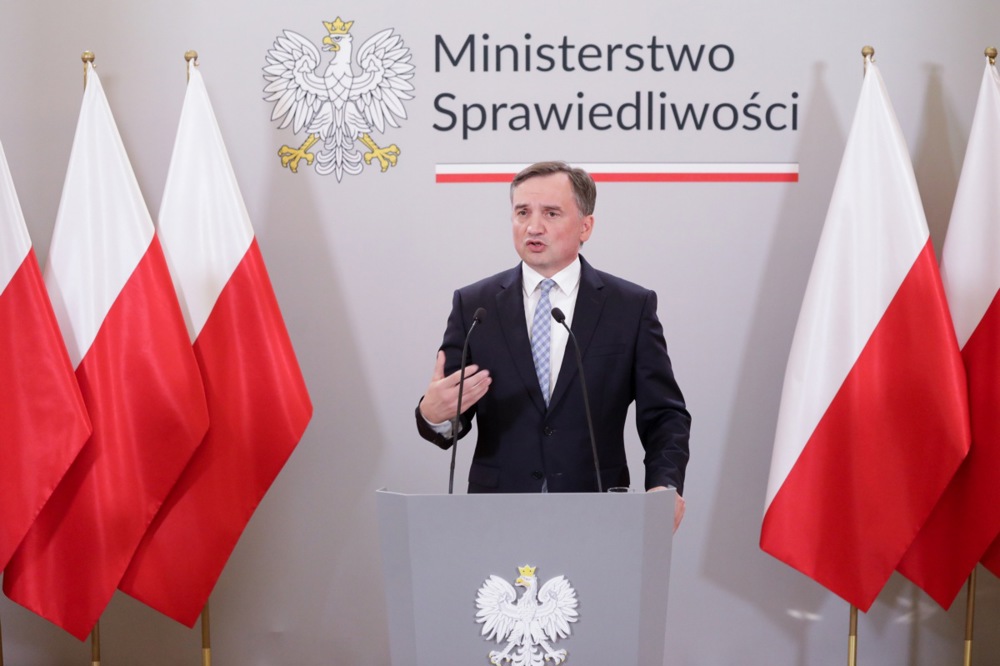With Poland’s new parliamentary majority preparing to take power, its leaders have made plans for a public sector purge — with Polish daily Gazeta Wyborcza publishing a list of names of PiS appointees who should be dismissed.
The threatened clear-out, which included public media, led to protests from public media employees and the National Media Council, which appoints its top management.
The moves followed an election campaign where Donald Tusk, who will lead the incoming government, promised to get rid of public media’s current management within a day of taking office.
The three parties making up the new parliamentary majority, Tusk’s own Civic Coalition (KO), the Third Way alliance and the Left party, have backed this promise.
They argued Polish public media was currently biassed in favour of the outgoing ruling party, the conservative PiS. The PiS received preferential treatment during the election, say the incoming coalition parties.
Gazeta Wyborcza, which has an anti-PiS orientation, included in its list officials it believed should be fired because “they had worked with or been appointed by the PiS government”.
“With the democratic opposition now taking over we need major personnel changes with the removal from work of people who were PiS propagandists and not public servants,” the newspaper said.
As well as the public media, the list included employees in the Polish Mail service and public finance bodies.
Gazeta Wyborcza concluded by asking its readers to tell the paper if it had failed to include any PiS activists who should lose their jobs. The paper received a large number of suggestions of additional names to include in the blacklist, it said.
The black list did not include any allegations of actual transgression, but only indicated an individual was a friend of a senior PiS figure or had stood for the PiS in elections.
The National Media Council passed a resolution in response, arguing any changes in the public media could only be introduced after legislation was passed, and in any case could not by-pass the National Media Council.
The body, which was set up by the outgoing PiS government, also said any attempt to by-pass the law would be illegal and unconstitutional. Those responsible would eventually be held to account, it said.
The incoming government had not provided details of its plans to change the management of public media. New legislation would take time and face a likely veto from President Andrzej Duda, who was elected as a PiS candidate.
There has been speculation that Tusk’s new government might attempt instead to liquidate the existing public media companies.
A group of journalists working in public and conservative-leaning media published an open letter “in defence of free speech” on October 27, saying “blacklists of journalists to be purged” were “reminiscent of the times of martial law”.
The new majority was already dominant in the commercial media, so if they took over public media, this would eliminate pluralism in the media and curtail freedom of speech, said the letter.
“Today we have a choice of a multitude of TV and other media which represent different views on current affairs and we do not feel that a situation in which all media are of the same view will be democratic”, the letter concluded.
As well as public media, Gazeta Wyborcza argued commercial media such as Polsat, RMF FM, and the portal Interia should consider making management changes. Each of these has remained politically neutral in the last several years.
A well-known journalist, Robert Mazurek, ridiculed prominent new KO MP Michał Kołodziejczak “lack of awareness of the constitution” in an interview.
Kołodziejczak, in return, claimed Mazurek was closely associated with Russian foreign ministry spokesperson Maria Zakharova, and working in collusion with her.
When another portal, Wp.pl, suggested to Kołodziejczak he had gone “a bit far”, the MP replied he was just demonstrating “how a key journalist from a radio station with the highest ratings behaves.”
The new parliament will first sit on 13 November, when the new majority will elect the Speaker.
The political leadership of the new parliamentary majority have meanwhile been negotiating the share-out of top government and parliamentary jobs.
While the new majority have agreed Donald Tusk would be their choice for prime minister, they have not yet agreed on other ministerial and parliamentary posts, or signed a coalition agreement and a programme for government.





